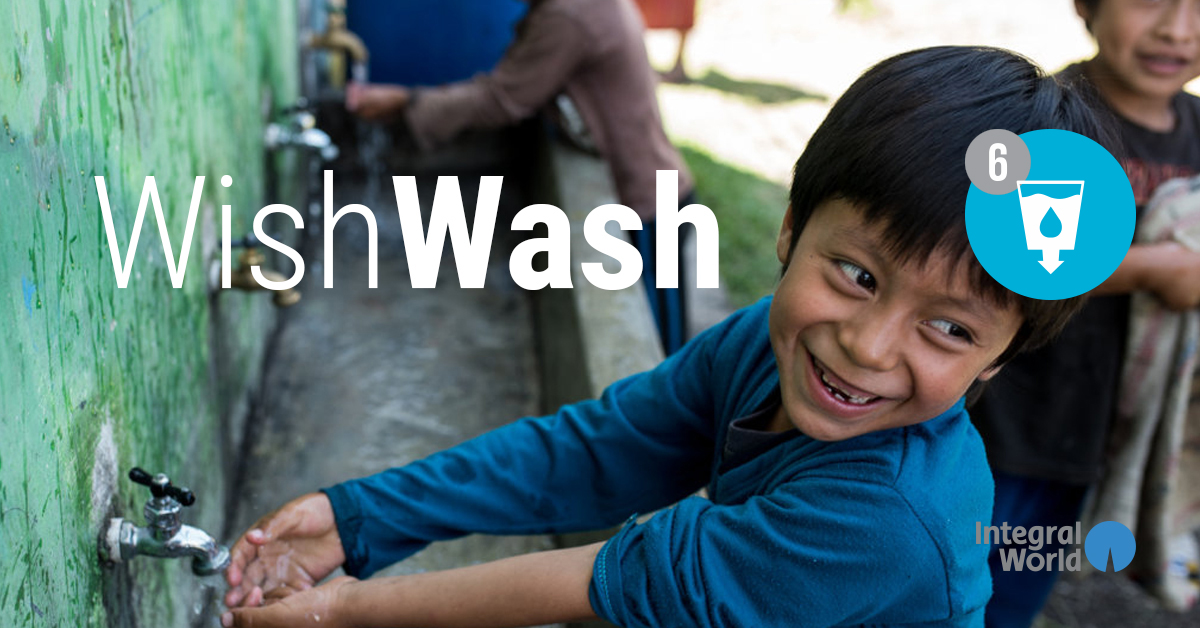WishWash – Transforming Schools through Clean Water and Hygiene Education
In many parts of the world, access to clean water, sanitation, and hygiene (WASH) facilities in schools remains a challenge. The lack of these basic amenities not only affects the health and well-being of students but also hinders their ability to learn and thrive in the educational environment. Recognizing the critical importance of addressing this issue, WishWash has launched a comprehensive program known as “WASH in Schools,” aimed at ensuring access to clean water, sanitation, and hygiene education in schools. This initiative is not only transforming educational institutions but also empowering communities and promoting a healthier future for children worldwide.
Background and Significance of WASH in Schools:
Access to clean water, adequate sanitation facilities, and hygiene education are fundamental human rights that have a profound impact on public health, education, and socio-economic development. However, millions of children worldwide lack access to these basic necessities, particularly in low and middle-income countries. The consequences of inadequate WASH infrastructure in schools are far-reaching, affecting not only the health and well-being of students but also their educational outcomes and future prospects.
Without access to clean water and sanitation facilities, students are at increased risk of waterborne diseases, such as diarrhea, cholera, and typhoid fever. These illnesses not only cause physical discomfort but also lead to absenteeism, poor academic performance, and even dropouts. Additionally, the lack of proper hygiene education contributes to the spread of infectious diseases and perpetuates harmful practices that compromise children’s health and dignity.
Addressing the WASH needs of schools is essential for creating a conducive learning environment where children can thrive academically, socially, and physically. By providing clean water, adequate sanitation facilities, and hygiene education, schools can promote good health practices, prevent disease transmission, and instill lifelong habits that contribute to overall well-being. Moreover, improving WASH infrastructure in schools has broader implications for community health, as students often serve as agents of change and convey hygiene practices to their families and communities.
Objectives of the WishWash “WASH in Schools” Program:
The WishWash “WASH in Schools” program is guided by the following key objectives:
- Ensure Access to Clean Water: The program aims to provide schools with reliable access to clean water for drinking, handwashing, and sanitation purposes. This involves installing water supply systems, such as boreholes, wells, or piped water connections, and implementing water treatment and storage solutions to ensure water quality and safety.
- Improve Sanitation Facilities: WishWash works to improve sanitation facilities in schools by constructing gender-segregated latrines or toilets that are accessible, safe, and hygienic. These facilities are designed to meet the specific needs of students, including those with disabilities, and comply with sanitation standards to promote dignity and privacy.
- Promote Hygiene Education: The program integrates comprehensive hygiene education into the school curriculum, ensuring that students receive age-appropriate lessons on topics such as handwashing, personal hygiene, menstrual hygiene management, and environmental sanitation. Hygiene promotion activities, including posters, demonstrations, and peer-to-peer learning, reinforce positive behaviors and attitudes towards health and hygiene.
- Build Capacity and Sustainability: WishWash works closely with school administrators, teachers, and community members to build capacity in WASH management and maintenance. Training sessions, workshops, and participatory activities empower stakeholders to take ownership of WASH facilities, promote behavior change, and ensure the sustainability of interventions over the long term.
- Monitor and Evaluate Impact: The program establishes robust monitoring and evaluation mechanisms to assess the effectiveness of WASH interventions and track progress towards program goals. Regular assessments of water quality, sanitation coverage, hygiene practices, and health outcomes enable WishWash to make data-driven decisions, identify areas for improvement, and demonstrate the impact of its interventions.
Implementation of the WishWash “WASH in Schools” Program:
The implementation of the WishWash “WASH in Schools” program follows a systematic and participatory approach, involving collaboration with schools, communities, government agencies, and other stakeholders. The programmatic activities are carried out in phases, with each phase focusing on specific interventions to address the WASH needs of schools comprehensively.
- Assessment and Planning: The program begins with a comprehensive assessment of the WASH situation in target schools, including the availability and condition of water sources, sanitation facilities, and hygiene practices. Based on the assessment findings, WishWash develops customized WASH plans in consultation with school authorities, taking into account the unique needs and priorities of each school community.
- Infrastructure Development: Once the WASH plans are finalized, WishWash proceeds with the implementation of infrastructure development activities, including the construction or rehabilitation of water supply systems, sanitation facilities, and handwashing stations. This may involve drilling boreholes, installing water pumps, constructing latrines, and providing hygiene kits to schools.
- Hygiene Promotion and Education: Concurrently, WishWash conducts hygiene promotion and education activities to raise awareness and promote behavior change among students, teachers, and community members. Through interactive sessions, demonstrations, and educational materials, students learn about the importance of handwashing, sanitation, and personal hygiene practices in preventing diseases and staying healthy.
- Capacity Building and Training: WishWash organizes capacity-building workshops and training sessions for school administrators, teachers, and community volunteers to strengthen their knowledge and skills in WASH management, hygiene promotion, and maintenance. Participants learn how to effectively manage WASH facilities, facilitate hygiene education sessions, and engage with students and parents to sustain positive behaviors.
- Monitoring and Evaluation: Throughout the implementation process, WishWash conducts regular monitoring visits and evaluations to assess the progress and impact of WASH interventions. Data on water quality, sanitation coverage, handwashing behavior, and health outcomes are collected and analyzed to measure the effectiveness of the program and identify areas for improvement.
Impact of the WishWash “WASH in Schools” Program:
The WishWash “WASH in Schools” program has made significant strides in improving the health, well-being, and educational outcomes of students. By providing access to clean water, sanitation facilities, and hygiene education, the program has:
- Reduced the incidence of waterborne diseases, such as diarrhea, among students.
- Increased school attendance and participation, particularly among girls who no longer miss classes due to menstrual hygiene management challenges.
- Improved academic performance and concentration levels, as students are healthier and more focused in the classroom.
- Empowered students to adopt positive hygiene behaviors and serve as hygiene ambassadors within their families and communities.
- Strengthened the resilience of schools and communities to public health emergencies, such as disease outbreaks and natural disasters, by promoting hygiene practices and preparedness measures.
Conclusion:
The WishWash “WASH in Schools” program exemplifies the transformative impact of investing in clean water, sanitation, and hygiene education in educational settings. By addressing the WASH needs of schools, WishWash has not only improved the health and well-being of students but has also created a conducive learning environment where children can thrive academically and socially. Through its comprehensive approach, the program has empowered schools and communities to take ownership of WASH facilities, promote positive hygiene behaviors, and sustain the impact of interventions over the long term.
Looking ahead, WishWash remains committed to expanding its “WASH in Schools” program to reach more schools and communities in need. By scaling up its efforts and collaborating with government agencies, non-profit organizations, and corporate partners, WishWash aims to make clean water, sanitation, and hygiene education accessible to every child, regardless of their socio-economic background or geographical location. Together, we can ensure that every school becomes a safe and healthy learning environment where children can fulfill their potential and build a brighter future for themselves and their communities.




